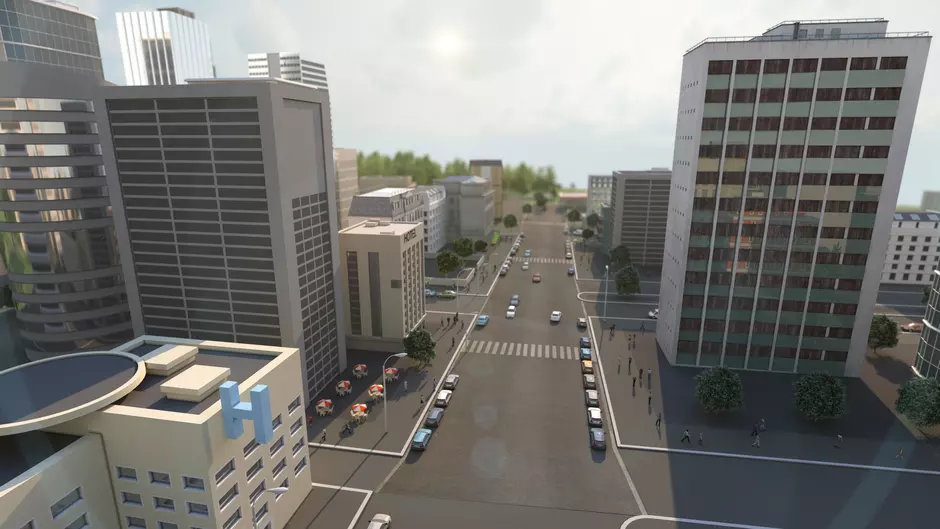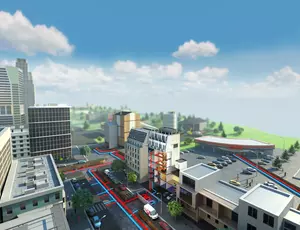The number of heat networks in the UK is expanding rapidly as part of the Government's decarbonisation plans, with around 500,000 households being served by a heat network. With over 14,000 networks in place, ranging from small schemes to city-wide networks, new regulations have been introduced to ensure that heat network customers have the same rights and protections as other energy users.
For housing developers and associations who have incorporated heat networks into new developments, this means that big changes have come into effect. Are you compliant? Find out all you need to know to make sure your organisation is adhering to the new legislation.
What do the new regulations involve?
The Department for Energy Security and Net Zero (DESNZ) and Ofgem have been working together to design the new regulatory regime for heat networks, which will substantially impact developers implementing heat networks in new developments. Following a 2017 Competition and Markets Authority recommendation, the new regulatory framework will bring heat network consumer protections in line with those in other energy sectors. This major regulatory overhaul, supported by the Energy Act 2023, recognises heat networks as a crucial low-carbon solution. Property developers implementing heat networks in their developments must adhere to new requirements across multiple areas: consumer protection standards including billing and complaint handling, mandatory technical standards through a new assurance scheme, and participation in a zoning system designed to expand heat network adoption. These changes represent a fundamental shift in how heat networks must be planned, built and operated within new developments.
From April 2025, the Energy Ombudsman and Citizens Advice have assumed their statutory powers, giving heat network users greater rights and protections. On the operators' side, the most crucial change is coming into effect in January 2026, when all existing heat networks will need to be authorised and all network operators will need to be defined.

How will this affect housing developers and associations?
This regulation change represents a significant shift in responsibilities for housing developers and associations. Unless heat networks are adopted by an external operator, these organisations must now register with Ofgem and assume full liability for their heat networks' management and associated risks. This encompasses comprehensive responsibilities including maintenance, billing, metering and resident communications. Housing developers and associations who register as operators need to invest in dedicated resources and specialist expertise to effectively manage these operations, as they are now legally obligated to deliver service standards equivalent to traditional energy providers.
The implementation of Heat Network Technical Assurance Scheme standards adds another layer of responsibility, requiring organisations to maintain high operational standards and contribute to Government decarbonisation goals. With end users expecting reliable, consistent service delivery, and Ofgem conducting compliance audits, organisations must carefully evaluate their operational capabilities and risk management strategies. This represents a fundamental change in how housing developers and associations must approach heat network management, requiring significant operational adjustments and resource allocation.
What are the options available to housing developers and associations?
Housing developers and associations have two main options in line with the implementation of the new regulations. Firstly, they can choose to register with Ofgem as a heat network operator by January 2026, and make sure they implement all the necessary steps to operate as an energy provider.
Alternatively, organisations can choose for their networks to be adopted by a specialist provider who will be able to take the stress off their hands. By choosing to hand over the operation of a heat network, housing developers and organisations can remove the necessity of registering with Ofgem, and the compliance requirements this will bring. Once a heat network has been designed and built, a developer's responsibilities towards it will end once the network has been adopted.
How can Veolia help?
Veolia's experience in owning, operating and maintaining heat networks goes back decades. From city-wide schemes, like the one in Sheffield that provides heat to over 125 of the city's buildings through 45km of pipes, to smaller networks covering individual housing developments, we are able to manage and maintain heat networks in line with the latest compliance requirements. We are perfectly placed to adopt heat networks and take away the hassle from housing organisations and developers. Our full in-house capabilities mean that our own teams of specialists can look after everything, from maintenance to customer service.



